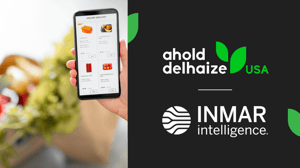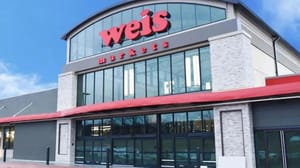Ahold Delhaize U.S. CEO on Building Consumer Trust
'Local impact and greater purpose' drives retailer, Kevin Holt says. The retailer strives to convey "local impact and a greater purpose," Kevin Holt says during an FMI Midsummer Strategic Executive Exchange session.

Just as consumers’ wants and needs constantly evolve so do their definitions of trust. For food retailers, who have long histories of building trust with their customers, the challenge is “maintaining and enriching this trust in the face of changing customer values,” David Fikes, executive director for the FMI Foundation, said in opening remarks of a session held during the association’s Midsummer Strategic Executive Exchange this week.
In the session, “Consumer Trust & Transparency: An Industry Call To Action,” Ahold Delhaize USA CEO Kevin Holt shared how the Salisbury, N.C.-based company is doing just that in three areas critical to building consumer trust and confidence: product information and transparency; health and well-being; and environmental and social compact.
“With the COVID environment that we’ve come out of and social injustice dialogues that we’re having, trust continues to change,” said Holt, who was joined in the session by Steve Presley, chairman and CEO of Nestle USA. “It’s no longer just do I get safe products from you, it’s evolved way beyond that into advancing social issues like racial injustice, as well as improving the sustainability of products that we sell; advocating for safe, sustainable and traceable supply chains and all the components in the supply chain that go with that; and really understanding consumers and being able to meet their needs for their lifestyles and dietary issues that they’re faced with today.”
Information and Transparency
In terms of product information and transparency, Holt said Ahold had a lot of legacy systems it had to rebuild “to get attribute sets that really represent the type of transparency that we want to provide for consumers.”
It goes hand in hand with health and well-being: Ahold Delhaize’s Guiding Stars product labeling programs is designed to help customers easily find foods that meet their nutrition goals with “good,” “better” and “best” indications—recently redesigned this June—on shelf tags, product packages and online. The program was developed at Hannaford Supermarkets in 2006 and has since supported Ahold Delhaize USA brands such as Food Lion, Giant Food, The Giant Co., Hannaford and Stop & Shop.
“Guiding Stars really looks at healthy choices from a navigation point of view, and we have that across the entire ecosystem, whether you’re digital or you’re in the store,” Holt said. “It really is built around the simple idea of salt, sugar, fat and what kind of products are you purchasing. Do they have one star, two stars, three stars—that type of thing.”
Holt said Ahold USA is also testing QR codes that would share origin of product and other information to evolve the shopping experience into a learning experience as well as provide secondary information about consumers can apply or use that information.
“This evolution of the consumer … is far more than give them a safe product, it’s help them make the right decision in their lives every day,” Presley of Nestle USA added. “We can’t be so set in our ways that we say, look, we did facts up front and that was enough. No, the consumer is going to evolve every day. They live in a universe of immense information that’s flooding them as they try to stay informed. … The more we can help them have good, clean facts that help them make the decisions they need to make when they buy the product, the better it is for our entire industry.”
Environmental and Social Compact
One of the biggest issues resonating with consumers today is that of environmental and social compact and related sustainability concerns, such as food waste, food insecurity, recycling infrastructure and single-use plastics, said session moderator Mark Baum, who is chief collaboration officer and SVP of industry relations for FMI.
“In the U.S., what we’ve tried to do is say, ‘What do we really stand for as we look at this,’ and we start thinking about where we are and how we want to move forward with it. When we look at the four pillars that really drive us in the U.S., we have this idea around local impact and greater purpose, and that’s what we talk a lot about,” Holt said.
For Ahold, part of that involves working to eliminate hunger and waste and setting science-based climate targets to reduce CO2 emissions in its operations by 50% by 2030 and to be net-zero by 2050. Its Hannaford brand is currently a zero-waste brand, and Holt said other “are well on their way too doing that.”
But none of that, Holt stressed, is doable alone. “It requires significant amount of partnership, it requires science. … As an industry we have done a fantastic job of building that and building relationships with partners such as Feeding America and others,” he said.
Partnerships and industrywide collaboration was at the heart of the message of maintaining consumer trust. “If we don’t do that, we run the risk of getting disrupted … by other sources and that would be unfortunate because we’ve spent many, many years of building trust with consumers,” Holt said.
Read more about:
Ahold DelhaizeAbout the Author
You May Also Like






